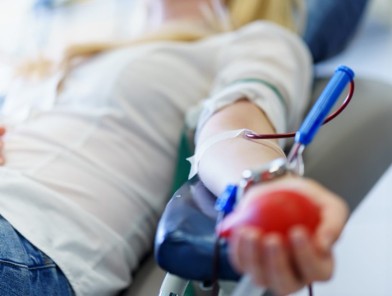Sex is a natural and enjoyable part of life, but like any physical activity, it can sometimes lead to accidents and injuries. Understanding the potential risks and knowing how to respond when things go wrong can help minimize the impact of these incidents. This comprehensive article explores various types of sexual accidents, including anal fissures, penile fractures, and more, providing detailed information on prevention, immediate response, and long-term care.
Sexual activity, while generally safe, involves physical exertion and anatomical interactions that can occasionally result in injuries. These injuries can range from mild discomfort to serious medical emergencies. The stigma surrounding sexual health can make it difficult for people to seek help or discuss these issues openly. This article aims to break down these barriers by providing clear, accessible information on sexual accidents, their prevention, and management.
Common Sexual Accidents and Their Prevention
Anal Fissures
What Are Anal Fissures?
Anal fissures are small tears in the lining of the anus, which can cause significant pain and bleeding during and after bowel movements. They are often caused by trauma to the anal canal, such as during anal sex or the insertion of large objects.
Prevention of Anal Fissures
-
Use Lubrication: Adequate lubrication is essential during anal sex to reduce friction and prevent tearing. Water-based or silicone-based lubricants are recommended.
-
Go Slow: Take your time during penetration to allow the anal muscles to relax and adjust. Rushing can increase the risk of tears.
-
Communicate: Maintain open communication with your partner about comfort levels and any pain experienced during the activity.
What to Do If You Experience an Anal Fissure
If you suspect you have an anal fissure, it's important to keep the area clean and avoid further irritation. Warm sitz baths can help soothe the area and promote healing. Over-the-counter pain relievers can manage discomfort. If symptoms persist, consult a healthcare provider for further evaluation and treatment, which may include prescription medications or procedures to promote healing.
Penile Fractures
What Is a Penile Fracture?
A penile fracture occurs when there is a tear in the tunica albuginea, the fibrous covering of the erectile bodies in the penis. This injury is typically caused by trauma to an erect penis, often during vigorous sexual activity or when the penis bends forcefully.
Prevention of Penile Fractures
-
Choose Safe Positions: Be mindful of positions that put excessive pressure on the penis, such as woman-on-top, which can increase the risk of bending.
-
Communicate with Your Partner: Ensure both partners are aware of each other's movements to avoid sudden, forceful motions that can cause injury.
-
Stay Aware: Pay attention to any discomfort or unusual sensations during sex and stop immediately if something feels wrong.
What to Do If You Experience a Penile Fracture
A penile fracture is a medical emergency. Symptoms include a popping or cracking sound, immediate pain, swelling, and bruising. If you suspect a penile fracture, seek emergency medical attention immediately. Treatment usually involves surgical intervention to repair the tear and prevent complications such as erectile dysfunction or penile curvature.
Vaginal Tears and Abrasions
What Are Vaginal Tears and Abrasions?
Vaginal tears and abrasions are common injuries that can occur during vigorous sex, childbirth, or the use of large or rough objects. These injuries can cause pain, bleeding, and discomfort.
Prevention of Vaginal Tears and Abrasions
-
Use Lubrication: Adequate lubrication helps reduce friction and prevent tearing.
-
Go Slow: Gradually increase intensity and depth of penetration to allow the body to adjust.
-
Communicate: Ensure open communication with your partner about comfort levels and any pain experienced.
What to Do If You Experience Vaginal Tears and Abrasions
If you experience a vaginal tear or abrasion, clean the area gently with warm water and avoid further irritation. Over-the-counter pain relievers can help manage discomfort. If bleeding is severe or symptoms persist, consult a healthcare provider for further evaluation and treatment.
Testicular Injuries
What Are Testicular Injuries?
Testicular injuries can occur due to direct trauma or impact to the testicles during sexual activity. These injuries can cause significant pain, swelling, and bruising.
Prevention of Testicular Injuries
-
Be Mindful of Movements: Avoid positions or activities that put excessive pressure on the testicles.
-
Communicate with Your Partner: Ensure both partners are aware of each other's movements to avoid accidental impacts.
What to Do If You Experience a Testicular Injury
If you experience a testicular injury, apply a cold compress to reduce swelling and take over-the-counter pain relievers to manage discomfort. If pain persists, swelling is severe, or you notice changes in the size or shape of the testicles, seek medical attention immediately to rule out more serious conditions such as testicular torsion.
Cervical Bruising
What Is Cervical Bruising?
Cervical bruising can occur during deep penetration, particularly in positions that allow for deeper thrusts. This can cause pain, bleeding, and discomfort.
Prevention of Cervical Bruising
-
Adjust Positions: Opt for positions that limit the depth of penetration to avoid direct impact on the cervix.
-
Communicate with Your Partner: Ensure open communication about comfort levels and any pain experienced during penetration.
What to Do If You Experience Cervical Bruising
If you experience cervical bruising, avoid deep penetration and give your body time to heal. Over-the-counter pain relievers can help manage discomfort. If symptoms persist or bleeding is severe, consult a healthcare provider for further evaluation and treatment.
Urinary Tract Infections (UTIs)
What Are UTIs?
UTIs are infections that can occur in any part of the urinary system, often caused by bacteria entering the urethra during sexual activity. Symptoms include pain or burning during urination, frequent urination, and cloudy or strong-smelling urine.
Prevention of UTIs
-
Stay Hydrated: Drink plenty of water to help flush out bacteria from the urinary system.
-
Urinate After Sex: Urinating after sexual activity can help remove bacteria from the urethra.
-
Practice Good Hygiene: Clean genital areas before and after sex to reduce the risk of infection.
What to Do If You Experience a UTI
If you suspect you have a UTI, drink plenty of water and consider over-the-counter treatments designed to alleviate symptoms. If symptoms persist or worsen, consult a healthcare provider for a proper diagnosis and antibiotic treatment.
Skin Irritations and Allergic Reactions
What Are Skin Irritations and Allergic Reactions?
Skin irritations and allergic reactions can occur due to friction, the use of certain lubricants, condoms, or sex toys. Symptoms include redness, itching, swelling, and discomfort.
Prevention of Skin Irritations and Allergic Reactions
-
Choose Hypoallergenic Products: Opt for lubricants, condoms, and sex toys made from hypoallergenic materials.
-
Test Products First: Test new products on a small area of skin before using them during sexual activity.
-
Use Adequate Lubrication: Ensure adequate lubrication to reduce friction and prevent irritation.
What to Do If You Experience Skin Irritations and Allergic Reactions
If you experience skin irritation or an allergic reaction, discontinue the use of the offending product and clean the area gently with warm water. Over-the-counter antihistamines and topical creams can help alleviate symptoms. If the reaction is severe or symptoms persist, consult a healthcare provider.
Muscle Strains and Injuries
What Are Muscle Strains and Injuries?
Muscle strains and injuries can occur due to the physical exertion involved in sexual activity. These injuries can cause pain, stiffness, and limited range of motion.
Prevention of Muscle Strains and Injuries
-
Warm Up: Engage in gentle stretching or physical activity to warm up muscles before sex.
-
Choose Comfortable Positions: Opt for positions that do not strain muscles or joints.
-
Take Breaks: Avoid prolonged or intense sessions without taking breaks to rest.
What to Do If You Experience a Muscle Strain or Injury
If you experience a muscle strain or injury, apply a cold compress to reduce swelling and take over-the-counter pain relievers to manage discomfort. Rest the affected area and avoid activities that exacerbate the pain. If symptoms persist or the injury is severe, consult a healthcare provider for further evaluation and treatment.
Oral Sex Injuries
What Are Oral Sex Injuries?
Oral sex injuries can occur due to excessive suction, biting, or the use of dental dams or other barriers. These injuries can cause cuts, bruising, and pain.
Prevention of Oral Sex Injuries
-
Be Gentle: Use gentle techniques and avoid excessive suction or biting.
-
Communicate with Your Partner: Ensure open communication about comfort levels and any pain experienced during oral sex.
-
Use Protection: Consider using dental dams or other barriers to reduce the risk of injury and infection.
What to Do If You Experience an Oral Sex Injury
If you experience an oral sex injury, clean the area gently with warm water and avoid further irritation. Over-the-counter pain relievers can help manage discomfort. If the injury is severe or symptoms persist, consult a healthcare provider for further evaluation and treatment.
Allergic Reactions to Semen
What Are Allergic Reactions to Semen?
Allergic reactions to semen, also known as human seminal plasma hypersensitivity, can occur in some individuals. Symptoms include redness, itching, swelling, and pain in the genital area after contact with semen.
Prevention of Allergic Reactions to Semen
-
Use Condoms: Using condoms can prevent contact with semen and reduce the risk of allergic reactions.
-
Communicate with Your Partner: Ensure open communication about any known allergies and discuss preventive measures.
What to Do If You Experience an Allergic Reaction to Semen
If you experience an allergic reaction to semen, clean the area gently with warm water and avoid further contact. Over-the-counter antihistamines and topical creams can help alleviate symptoms. If the reaction is severe or symptoms persist, consult a healthcare provider for further evaluation and treatment.
Broken Condom
What Is a Broken Condom?
A broken condom can occur during sexual activity due to factors such as improper use, expired condoms, or the use of oil-based lubricants. This can lead to unintended pregnancy and the transmission of sexually transmitted infections (STIs).
Prevention of Broken Condoms
-
Use Condoms Correctly: Follow instructions for proper condom use, ensuring it is put on correctly and that air bubbles are removed.
-
Check Expiration Dates: Ensure condoms are not expired and store them in a cool, dry place.
-
Use Water-Based Lubricants: Avoid using oil-based lubricants, which can weaken latex condoms.
What to Do If a Condom Breaks
If a condom breaks, stop sexual activity immediately and replace it with a new one. If there is a risk of pregnancy, consider using emergency contraception and consult a healthcare provider. If there is a risk of STI transmission, seek medical advice for testing and treatment.
Pelvic Inflammatory Disease (PID)
What Is Pelvic Inflammatory Disease?
Pelvic inflammatory disease (PID) is an infection of the female reproductive organs, often caused by sexually transmitted bacteria. Symptoms include pelvic pain, fever, unusual discharge, and pain during intercourse.
Prevention of Pelvic Inflammatory Disease
-
Practice Safe Sex: Use condoms and practice safe sex to reduce the risk of STIs.
-
Get Regular Screenings: Regular STI screenings can help detect and treat infections early.
-
Maintain Good Hygiene: Practice good genital hygiene and avoid douching, which can disrupt the natural balance of bacteria.
What to Do If You Suspect PID
If you suspect you have PID, seek medical attention immediately. Early treatment with antibiotics can help prevent complications and long-term damage to the reproductive organs.
Allergic Reactions to Lubricants
What Are Allergic Reactions to Lubricants?
Allergic reactions to lubricants can occur due to sensitivity to certain ingredients. Symptoms include redness, itching, swelling, and discomfort in the genital area.
Prevention of Allergic Reactions to Lubricants
-
Choose Hypoallergenic Products: Opt for lubricants made from hypoallergenic materials and free from irritants.
-
Test Products First: Test new lubricants on a small area of skin before using them during sexual activity.
What to Do If You Experience an Allergic Reaction to Lubricants
If you experience an allergic reaction to a lubricant, discontinue use and clean the area gently with warm water. Over-the-counter antihistamines and topical creams can help alleviate symptoms. If the reaction is severe or symptoms persist, consult a healthcare provider.
Sexual accidents, while sometimes embarrassing and uncomfortable, are a natural part of human sexuality. By understanding the potential risks and taking preventive measures, individuals can enjoy safer and more satisfying sexual experiences. Open communication, proper use of protection, and awareness of one's own and one's partner's comfort levels are key to preventing injuries. When accidents do occur, prompt and appropriate response can help minimize the impact and ensure a speedy recovery. By fostering a culture of openness and education around sexual health, we can reduce the stigma and encourage individuals to seek help when needed.













